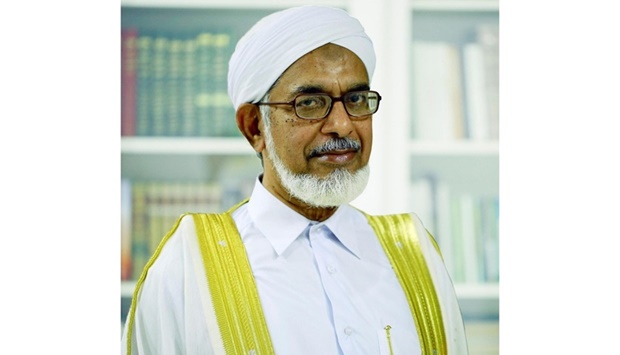Dr Nadwi is on a visit to Doha where he attended the 14th Doha Conference on Interfaith Dialogue under the theme of ‘Religions and Hate Speech...Scriptures and Practice’. The Vice-Chancellor of Kerala-based Darul Huda Islamic University, Nadwi is a member of International Union for Muslim Scholars.
Dr Nadwi, during an interview with Gulf Times, stressed the need for interfaith dialogue between cultures while developing it as an opportunity to address issues and the challenges that prevent peaceful coexistence.
“Neither any religion nor ideology, whether it’s oriental or other, advocate violence or hatred at any cost. While it comes to Islam, its teachings are based on the basic principles of the equality of mankind, mutual understanding, co-operation and friendship. Prophet Muhammad’s (PBUH) life is marked by love and compassion while his covenants outline that all should be treated as humans,” he said noting that Qur’an teachings are all about inclusiveness and the holy book describes itself as ‘an exposition for the people’ without constraining its address to any particular community. “Further, it urges to be just and bridge the gaps as it says “Allah doesn’t forbid you to deal justly and kindly with those who fought not against you on account of religion and did not drive you out of your homes. Verily, Allah loves those who deal with equity.”
“Neither nurse mutual hatred, nor jealousy, nor enmity, and become as fellow brothers and servants of God,” the Prophet’s (PBUH) teaching, addresses the entire humankind while urging them to keep the bond of love and mutual respect intact.
“Dialogues are essential as they create a better atmosphere of togetherness,” he said.
“Islam is for human while Qur’an was revealed for the spiritual and physical elevation of the entire humankind. Humanity is first and the fundamental duty of disseminating the messages of togetherness applies to all Muslim scholars who got the religious obligation of discharging their duties duly.”
This is the second time Dr Nadwi has represented India at the Doha Conference on Interfaith Dialogue while highlighting the country’s legacy of upholding harmony.
“At the Interfaith Dialogue, I was delighted to represent India’s centuries old initiatives that developed a strong bond of togetherness across India. Numerous heritages and monuments bear witness of a glorious past while telling the beautiful stories of religious harmony in India where people from different faiths live together in the spirit of humanity, diversity and rich heritage of tolerance,” he said.
Dr Nadwi praised the efforts by Qatar government to foster peace noting that initiatives like Interfaith Dialogue consolidate the foundations of co-operation among civilisations, cultures and religions for a better future for human society.
“It’s an ideal venue of interaction with various issues and topics that urge our attention in the local and global scenes as it’s attended by intellectual and consultative forums of thinkers, religious scholars and academics,” he said, adding that the conferences discussed frameworks for co-operation between religions while stressing the need to serve the humankind regardless of their religion, race, gender or colour.
“Also, the conference, in its 14th edition, sought ways to enhance understanding and knowledge of the other to achieve the foundations of global co-existence,” he noted, adding that there is need to spread the idea of interfaith dialogues in order to achieve coexistence, promote understanding and to strengthen links between followers of various religions.
Noting that misconceptions about Islam loom large while tarnishing the image of the religion and denigrating its true spirit, Dr Nadwi said that there should be attempts to address this grim scenario while opening the new fronts of dialogues and building bridges.


